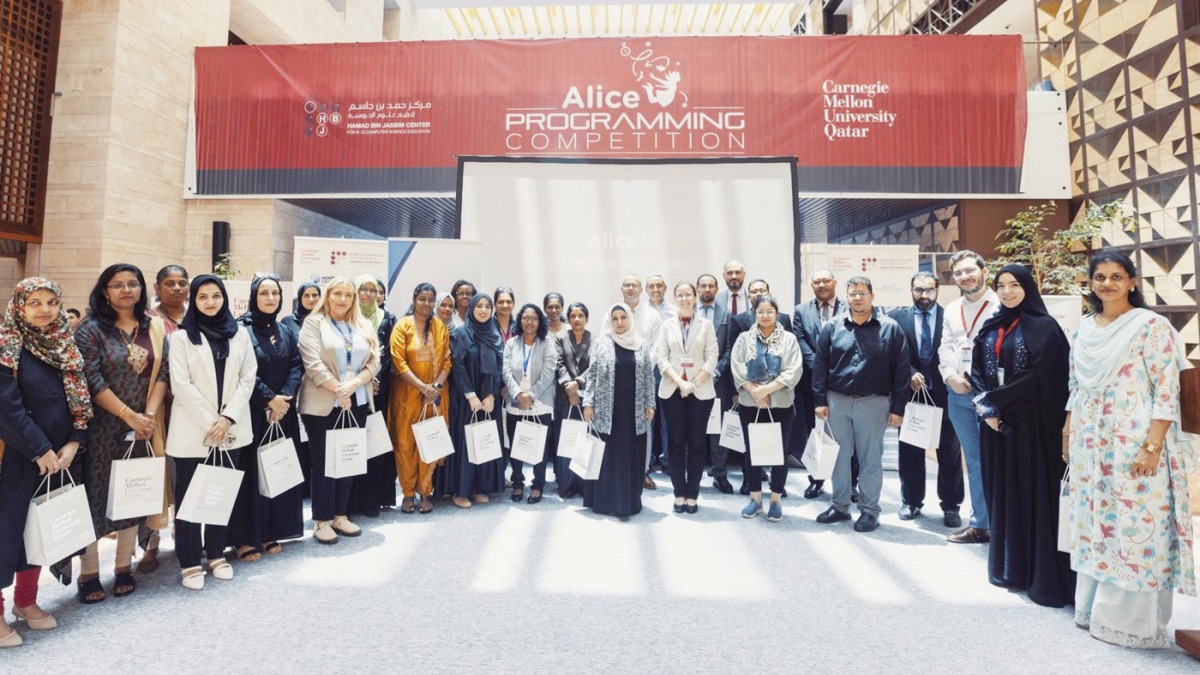The collaboration between Jassim and Hamad Bin Jassim Charitable Foundation and Carnegie Mellon University in Qatar has led to the establishment of the Hamad Bin Jassim Center for Computing Science Education (HBJ Center) in 2018. The aim of this center is to empower Qatar’s youth with the necessary skills to succeed in a digital world. Through programs like MindCraft and Alice Middle East curriculum, the center introduces students to computational thinking and programming, reaching thousands of students in Qatar schools.
The impact of the HBJ Center has been profound, with over 17,000 students participating in MindCraft workshops and 22,000 students taking the Alice Middle East modules each year. This has led to a noticeable increase in interest and enthusiasm for computer science among Qatar’s youth, as evidenced by the growing number of talented students applying to study computer science at CMU-Q each year. The center is on a mission to foster computational thinking at all levels, ensuring that students are equipped with the necessary skills for the future.
The managing director of the Jassim and Hamad Bin Jassim Charitable Foundation, Saeed Mudhkar Al Hajri, highlights the importance of promoting sustainability through the HBJ Center. By focusing on quality education and equitable access to computer science, the center is contributing to the Sustainable Development Goals of decent work and economic growth. This new model of charitable giving transcends traditional approaches in the humanitarian sector, promoting health and education for a better life.
As students become more proficient in computer science, the HBJ Center has expanded its offerings to cater to different age groups and interests. Programs like MindCraft Alpha and MindCraft OnDemand provide students with opportunities to explore computational thinking, problem solving, and algorithm design. The center also offers specialized camps in Python, AI and machine learning, and cybersecurity, allowing students to delve deeper into the possibilities of computing.
Michael Trick, dean of CMU-Q, is optimistic about the future of Qatar students interested in computing. He praises the impact of the HBJ Center in introducing thousands of students to the fundamentals of computer science, and looks forward to seeing how this will shape Qatar’s knowledge economy. By equipping students with the skills of the future, the HBJ Center is contributing to a culture of creativity, technology, and innovation in Qatar, ultimately shaping the country’s future in the digital age.
In just six years, the HBJ Center has made a significant impact on the lives of thousands of students in Qatar. By fostering enthusiasm for computer science and equipping the next generation with the tools for success, the center is helping to shape Qatar’s future as a leader in technology and innovation. With a focus on empowering youth and promoting sustainability, the collaboration between Jassim and Hamad Bin Jassim Charitable Foundation and Carnegie Mellon University in Qatar continues to inspire Qatar’s youth to explore the exciting world of computing.











